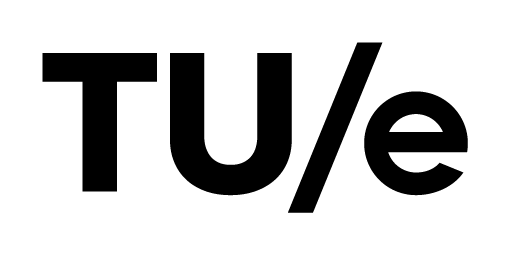A Powerless Future
On a quiet morning in 02038, you wake up and check your phone as always, the battery is quite low. You consequently attempt to charge it, but to no avail. After double checking the settings you realise the lights can’t turn on, and the air conditioning has failed. Another power outage, how long will this one last?
For almost all of humanity’s existence we have lived without electricity, however today’s life wouldn’t be possible without it, in fact living at all would become an almost insurmountable challenge within a couple of weeks. As provocative as this apocalyptic vision of the future is, toning it down a little may provide a new perspective on how our life has changed because of the technology in it, and how that extremely dominant lifestyle can be challenged. This is essentially the focus of the theme my group is in, Challenging Consumerism by Design within the Researching the Future Everyday Course (Theme 3: Challenging consumerism by design – TU/e Researching the Future Everyday (imaginari.es)). We are currently exploring three different futures where consumerism and the accompanying techno-hedonist are challenged by changing practices. In researching the potential for frequent power outages to change resource intensive practices, I have come across theories, tools and challenges that inform how we might go about proceeding with the theme.
Techno-Hedonism

(V Fernando, n.d.)
So far our process for thinking about the future has been grounded in the past and present. Beginning with the works of Dahlgren et al. (2021) allowed us to understand what characterizes the techno-hedonist persona and the effect it has had on society. In essence, this persona is used as the ideal archetype of a target user for household products, valuing efficiency and gratification, while often not realistically considering the rest of the residents in the house. According to this vision, a product that is convenient, offers control and choice, or at least provides the illusion, should be strived for (Dahlgren et al., 2021). This was quite eye-opening, especially because of how I recognised some of these ways of thinking in what I was taught to be ‘good product design’. This technological solutionism has clearly embedded itself in modern society to the point that it can distract from the fact that designing what many see as solutions actually contributes to a larger problem.
Challenges and Methods
The frequent power outage example would certainly impact every aspect of life, yet the other two directions wouldn’t be any less drastic to the way the society would work in 02038. The other directions are concerned with the practice of foraging becoming mainstream and gift giving in a non-consumerist society respectively. The clear difference so far is that the direction I am researching is still quite broad and would benefit from having one main practice to focus on. At this point I am facing the challenges of envisioning a future and how to create coherence for a robust vision, mainly referring to the techniques used in worldbuilding and design (Zaidi, 2019). Currently I am approaching it through looking at examples of where frequent power outages already occur, in some cases they are even planned. We have also briefly discussed how some versions of this future might result in an even larger emphasis on consumerism and products that will alter the dependency on technology, while still exploiting the situation. It’s very noticeable how asking how we could do things in the future without electricity can almost be the same as asking how we did things in the past. Setting up these obstacles for ourselves helps to identify the necessary elements to create a compelling future where one specific practice can lead the way it is designed for.

Worldbuilding Mandala (McDowell, 2015)
All of this makes me realise how valuable it is to have control over the way you envision the future, and how effective and integral design is to communicating that. Becoming aware of the impact of consumerism on the way we think about the future and the current disastrous impact on the climate crisis indicates a clear need to challenge this ideology. This “performativity of future visions” and the need for “democratising the future” has become apparent through the brainstorming and discussion we have been doing (Kuijer, 2022). Understanding the causes of the problem reveals the potential for solutions as well. If the mismatched non-existent persona has found its way into reality, could we use this technique to change practices for the better?
Conclusion
The next phase begins with the aim of concretising our ideas and trying out methods to communicate them effectively, even test them. Diving deeper into the research and ideas and testing the methods to execute them with will propel us to a provocative end result. The goal is to conceive an experience that exposes the viewers to new perspectives on the forces at play in shaping their future, and communicate the need to take an active part in this ourselves.
References
Dahlgren, K., Pink, S., Strengers, Y., Nicholls, L., & Sadowski, J. (2021). Personalization and the Smart Home: questioning techno-hedonist imaginaries. Convergence, 27(5), 1155–1169. https://doi.org/10.1177/13548565211036801
Getty Images. (n.d.). Power outage. BBC. https://www.bbc.com/future/article/20191023-what-would-happen-in-an-apocalyptic-blackout
Kuijer, L (2022). Extending possible futures of summer comfort in Dutch households. Phase 2 report in VENI project ‘Anticipating the Role of Smart Technologies in the Dynamics of Everyday Life’. TU Eindhoven.
McDowell, A. (2015). Alex McDowell’s World Building Mandala. Research Gate. https://www.researchgate.net/figure/Alex-McDowells-World-Building-Mandala-2015_fig7_321886159
V Fernando, N. (n.d.). Consumerism and Pollution. Dribble.com. https://dribbble.com/shots/5397093-Consumerism-and-Pollution
Zaidi, L. (2019). Worldbuilding in Science Fiction, Foresight and Design. Journal of Futures Studies. https://doi.org/10.6531/JFS.201906


